Tooth Extraction Healing Time: What to Expect and How to Recover
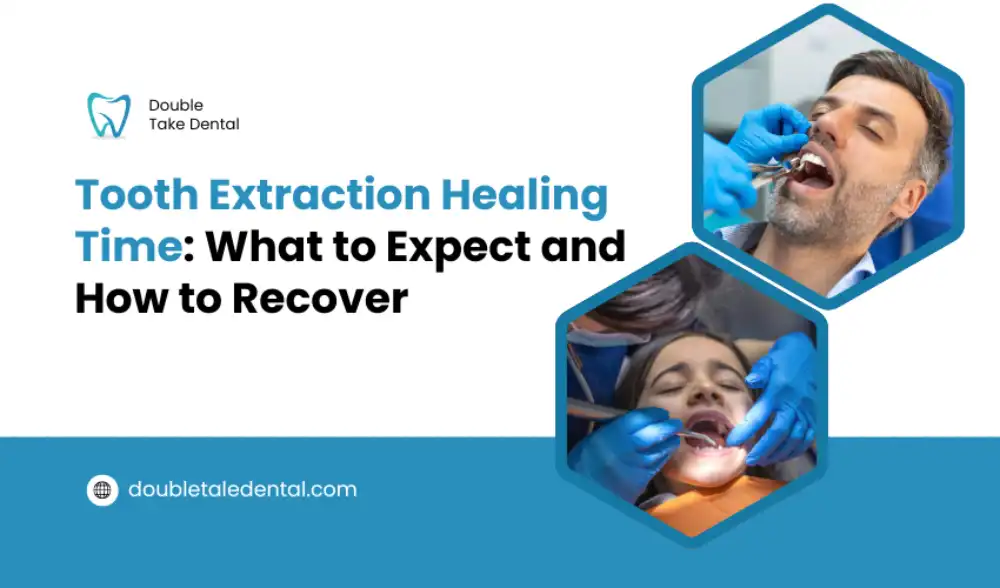
Do you have a tooth that’s causing constant pain or discomfort? Millions of people undergo tooth extractions every year to relieve pain from decay, infections, or trauma.
While the idea might sound scary, it’s often the first step toward restoring your oral health and preparing for future treatments like implants.
According to NIH reports, adults aged 20 to 64 have an average of 25.5 teeth remaining. However, removing a tooth often raises one key concern: what is tooth extraction healing time? What are the aftereffects?
This guide will walk you through the full healing process and how much time it usually takes. You will also find helpful tips to make the healing go faster.
Why Tooth Extractions Are Necessary

Tooth extractions are suggested when no other treatments are effective. Here are a few reasons why tooth extraction becomes crucial.
- Severe Tooth Decay: When a tooth is damaged and cannot be repaired with any treatment, it needs to be extracted.
- Infection: If one or more teeth get infected, the infection starts spreading to other teeth.
- Overlapping teeth: If new teeth come out before the older ones break, tooth extraction is required for proper tooth alignment.
- Trauma or Injury: Fractured teeth that cannot be restored.
- Gum Disease: Advanced periodontal disease may cause teeth to loosen and require extraction.
What Happens Right After a Tooth Extraction?
Blood vessels supply blood to teeth, just like other parts of the body. When a tooth is pulled from its socket, these blood vessels get ruptured. That leads to immediate bleeding after tooth extraction.
The dentist will place gauze in the socket to stop bleeding and ask you to put pressure on the gauze. Within a few minutes, a clot will form in the socket which is the first step towards healing.
During this period, follow the instructions of your dentist. Avoid rinsing your mouth as it keeps your clot undisturbed and promotes healing.
What is Tooth Extraction Healing Time?
One of the most frequently asked questions is: how long does a tooth extraction take to heal? The answer depends on the type and complexity of the procedure. Here is a breakdown of a general timeline:
Simple Extraction (Visible Tooth)
Visible teeth are easy to remove and take less time to heal. Their initial recovery starts in 1-2 days. Most of the healing occurs within 7 to 10 days, and complete recovery usually takes 2 to 3 weeks.
Surgical Extraction (Impacted or Broken Tooth)
In contrast, a surgical extraction, often needed for impacted or broken teeth, requires more time. Initial recovery may take 3 to 5 days, while molar removal can take 3 to 4 weeks to heal. Full recovery from a surgical extraction may extend up to 2 months.
Full Teeth Extraction
Full teeth extraction usually takes longer than all other extraction types to heal. This may include bone grafting, denture fitting or other treatments for a proper healing and restore oral function.
Molar Removal Healing Time
Back molars typically have larger and deeper roots which makes their recovery time longer than usual. You can expect swelling for up to 3–5 days, leading to healing in the following 3–4 weeks. The complete healing process takes almost 2 to 3 months in these cases.
4 Stages of the Tooth Extraction Healing Process
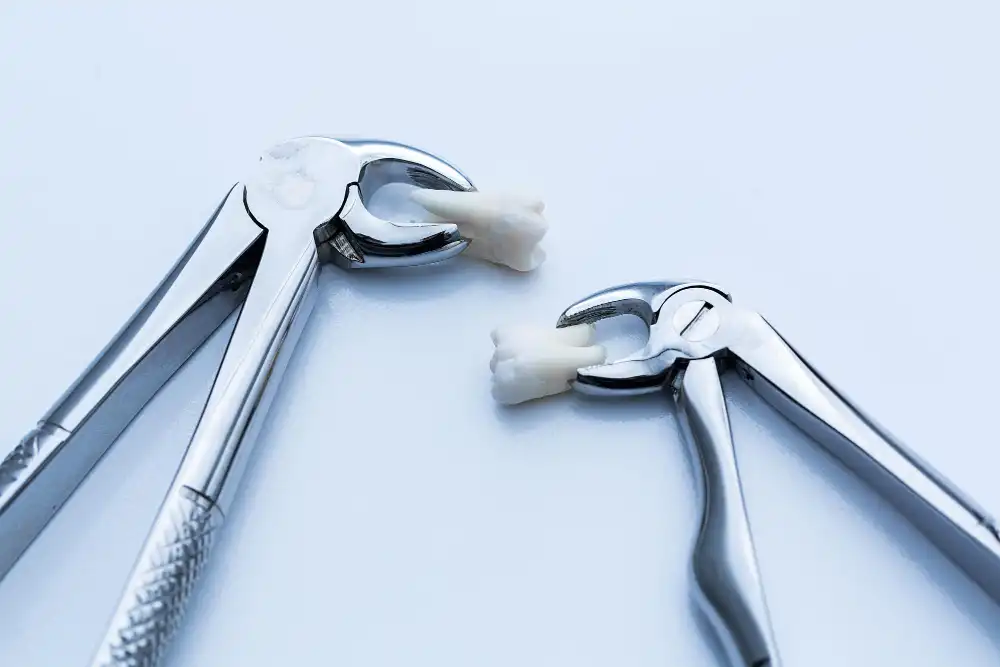
Healing occurs in distinct phases. Let us explore each stage of the healing process for extracted tooth:
1. Blood Clot Formation
Blood clots form within hours. This clot protects the bone and helps form the foundation for new tissue.
2. Tissue Repair Begins
By Day 2 or 3, soft tissue starts regenerating. You may still feel slight pain and swelling.
3. Soft Tissue Recovery
By the end of the first week, the socket is visibly healing. Minor indentations are normal.
4. Bone Healing
This is the final and slowest stage. It may take 4–6 months for the bone to fully harden and reshape under the gum.
Necessary Do’s and Don’ts to Recover Faster
Proper aftercare significantly impacts how well and how quickly you heal. These steps can help accelerate the healing process of a pulled tooth and avoid painful complications.
Do’s
- Rest for at least 24–48 hours
- Stay hydrated (avoid straws)
- Rinse with warm saltwater after 24 hours
- Eat soft, cool foods like applesauce, mashed potatoes, and yogurt
- Use cold compresses for swelling
- Elevate your head while resting
- Take all prescribed medications as instructed
Don’ts
- Do not smoke or vape
- Do not consume alcohol
- Avoid spitting or rinsing forcefully
- Refrain from intense physical activity for at least 2–3 days
- Do not disturb the clot with fingers or tongue
Trust Double Take Dental for Gentle and Safe Tooth Extractions
If you are looking for a reliable tooth extraction service, Double Take Dental is your go-to solution. With years of experience in addressing various dental issues, we have earned the trust of our clients and their families. Our experienced and respectful staff helps our clients relax while undergoing teeth treatment.
Whether you want dental cleaning or a surgical extraction of your broken teeth, we have you covered. With our well-trained staff, advanced tools and techniques, and easy access to our experts, we provide solutions to all your dental problems.
Conclusion
Tooth extraction healing time is different for different types of extraction and the location of the teeth. Front teeth are easy to remove and have fewer roots which makes them easy to heal.
However, broken teeth that need surgical extraction or molars that have more roots need several months for complete healing.
You can speed up your recovery by getting treated by the right dentist service providers like Double Take Dental and avoiding things that may disturb your healing process.
Recent Posts
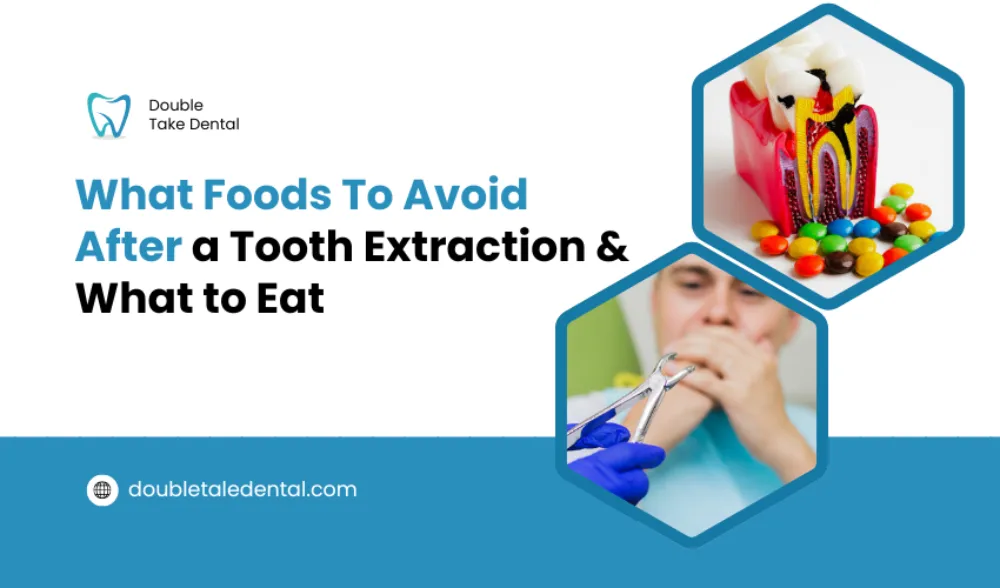
What Foods To Avoid After a Tooth Extraction & What to Eat
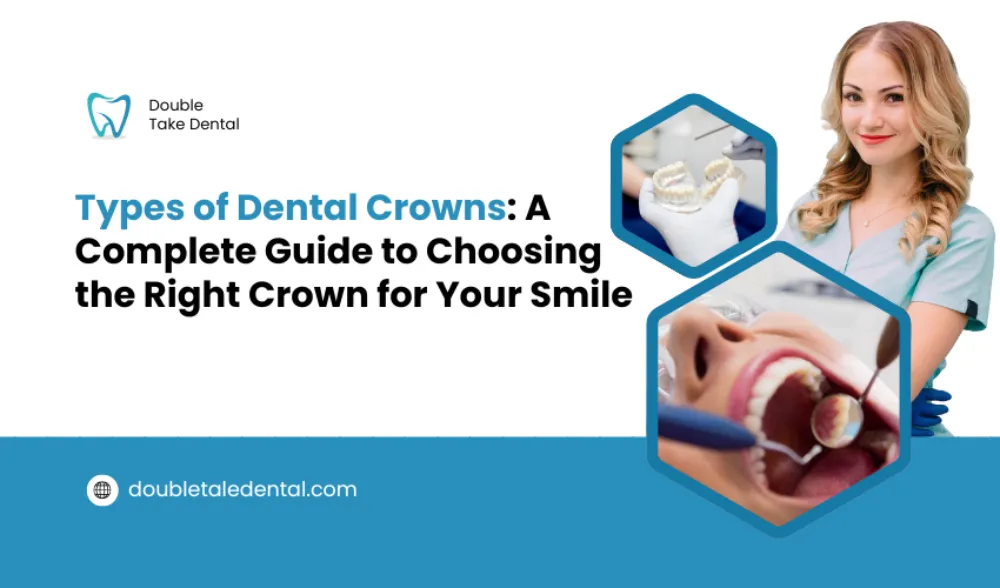
Types of Dental Crowns: A Complete Guide to Choosing the Right Crown for Your Smile
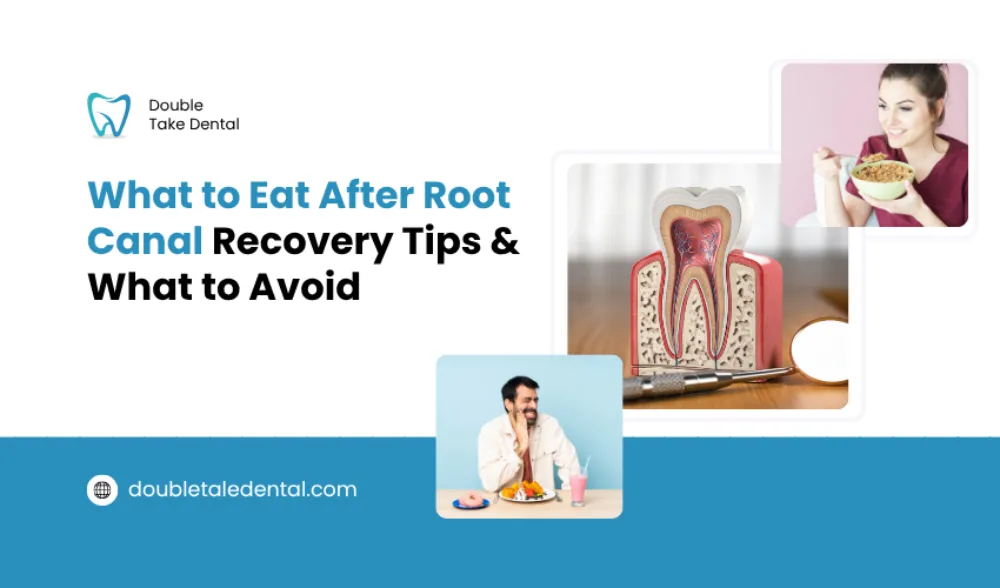
What to Eat After Root Canal: Recovery Tips & What to Avoid

